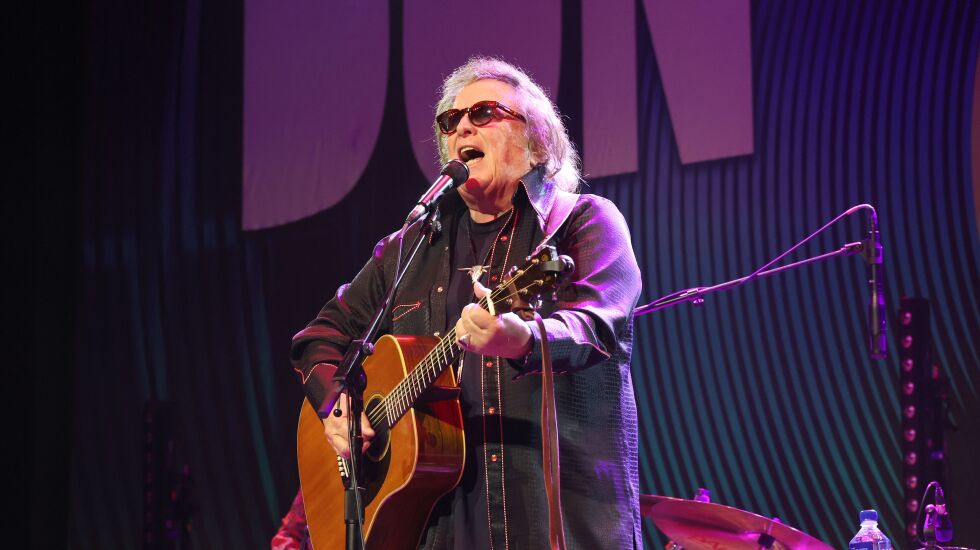
A long, long time ago, I can still remember
How that music used to make me smile
And I knew if I had my chance
That I could make those people dance
And maybe they’d be happy for a while …
If you’re of a certain age or you’re a student of pop music history, just reading those lyrics will likely drop Don McLean’s “American Pie” into the jukebox of your mind. You can already hear that lonely piano accompanying McLean’s plaintive lyrics, and you know exactly when the song kicks into the next level and you’re ready to sing along with one of the catchiest choruses of all time.
McLean’s epic poem hit No. 1 on the Billboard pop charts in January of 1972 and has been part of the pop culture landscape ever since, selling millions of records worldwide; inspiring famous cover versions by Madonna and Garth Brooks, among others; becoming the centerpiece of a heartbreakingly effective mourning sequence on “Zoey’s Extraordinary Playlist,” and even serving as the title (with no other connection) for a series of raunchy comedies that became so huge that if you Google “American Pie,” the movie shows up first, the song second.
Come on, Google. Show some respect!
For decades, McLean has largely declined to get into the specifics of the much-studied, often misinterpreted lyrics to his iconic opus, but in the Paramount+ documentary “The Day the Music Died: The Story of Don McLean’s ‘American Pie,’ ” the 76-year-old singer-songwriter takes us through the genesis of his pop masterpiece, corrects a number of common misperceptions (“And while the king was looking down, the jester stole his thorny crown” had nothing to do with Bob Dylan or Elvis Presley) and provides invaluable context to one of the most enduring and original pieces of pop music ever composed.
Director Mark Moormann skillfully weaves McLean’s biography into a larger narrative about the often-intertwining paths of the social and political changes taking place in America and the music that often reflected and sometimes influenced the culture. It might seem a bit much for a single song to be the focus of a 90-minute documentary, but on the short list of songs that merit such extensive scrutiny, you’d have to include “American Pie.”
McLean talks about his upbringing in New Rochelle, New York, and his early days as a musician, and how he was impacted by the news of “The Day the Music Died,” i.e., Feb. 3, 1959, when a plane carrying Buddy Holly, Ritchie Valens and “The Big Bopper” J.P. Richardson crashed near Clear Lake, Iowa.
By the early 1970s, “The country was in an advanced state of psychic shock,” said McLean. “And so I said, I gotta have a big song about America. One day it all came out, like a genie out of a bottle. I knew I had a tiger by the tail.”
After a thorough and well-edited chronicle of the writing and recording of “American Pie” and its impact on the culture, we come full circle, with McLean playing the Surf Ballroom in Clear Lake — the same venue where Holly, Valens and Richardson performed their last show. In a lovely touch, McLean meets Connie Valens, Ritchie’s sister, who says, “You immortalized my brother, J.P. and Buddy. You took a terrible tragedy and made rock ’n’ roll history. Thank you.”







